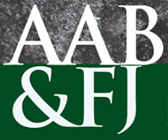Abstract
The theorising in accounting prior to 1970 was rejected as not providing sufficiently general theories. Informed by theories in economics and finance (and other disciplines such as psychology) and with the aid of computers, attempts to theorise accounting took a new direction. Large data collection and analysis emphasized a purportedly more systematic empirical approach to developing theory.
Keywords: accounting, neo-empiricism, capital markets research, behavioural finance, efficient
How to Cite:
Gaffikin, M., (2007) “Accounting Research and Theory: The age of neo-empiricism”, Australasian Accounting, Business and Finance Journal 1(1), 1-19. doi: https://doi.org/10.14453/aabfj.v1i1.1
Downloads:
Download PDF
111 Views
15514 Downloads

